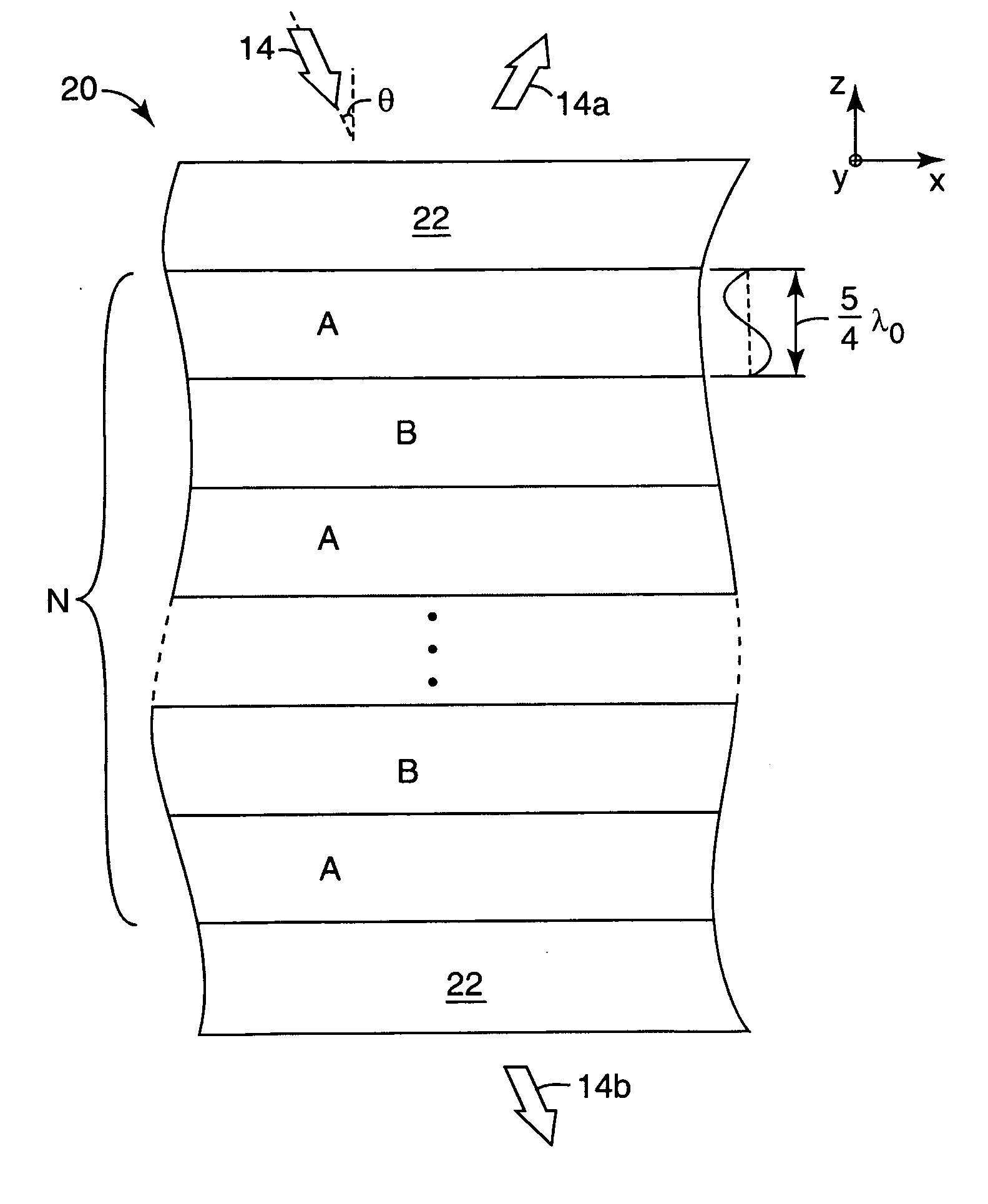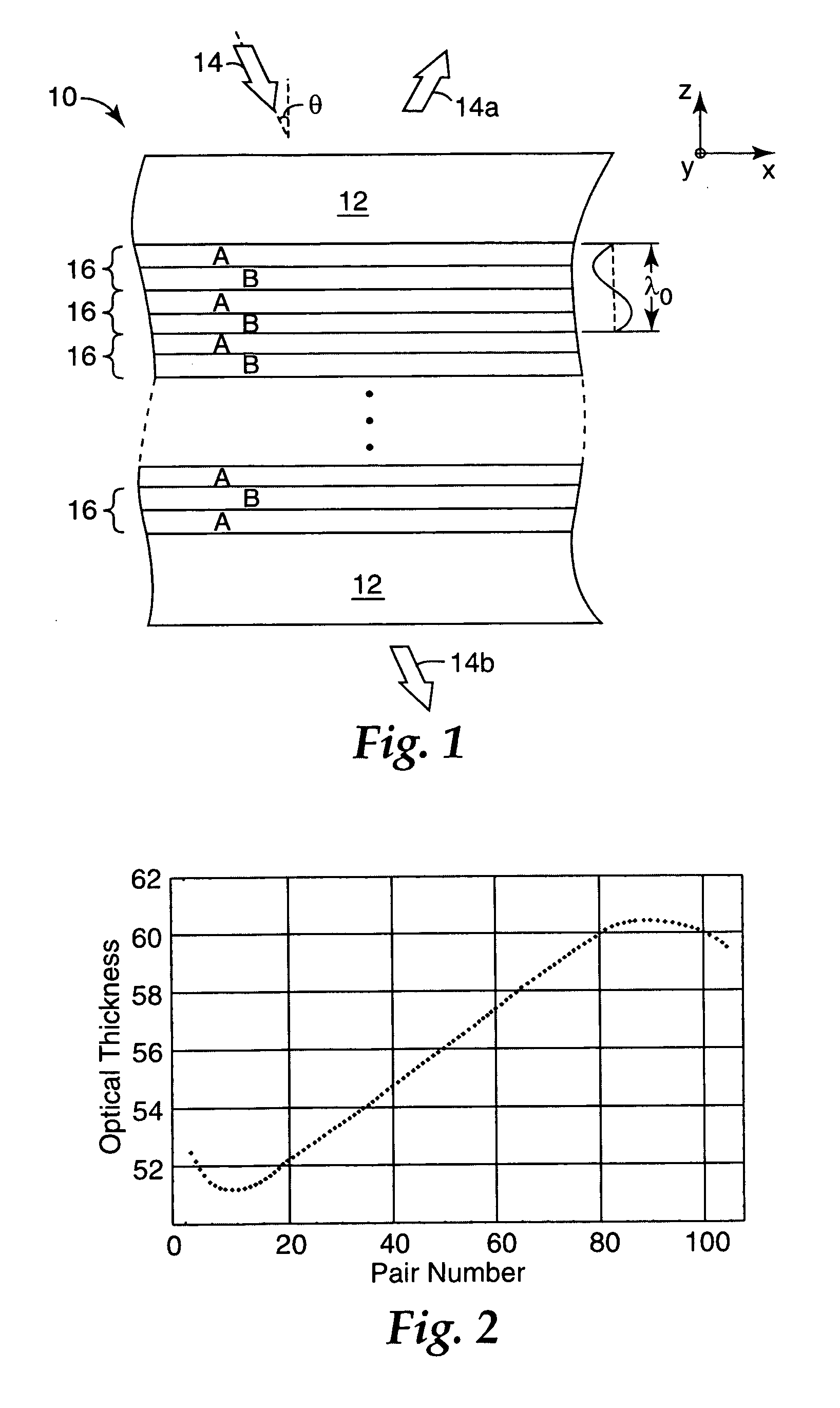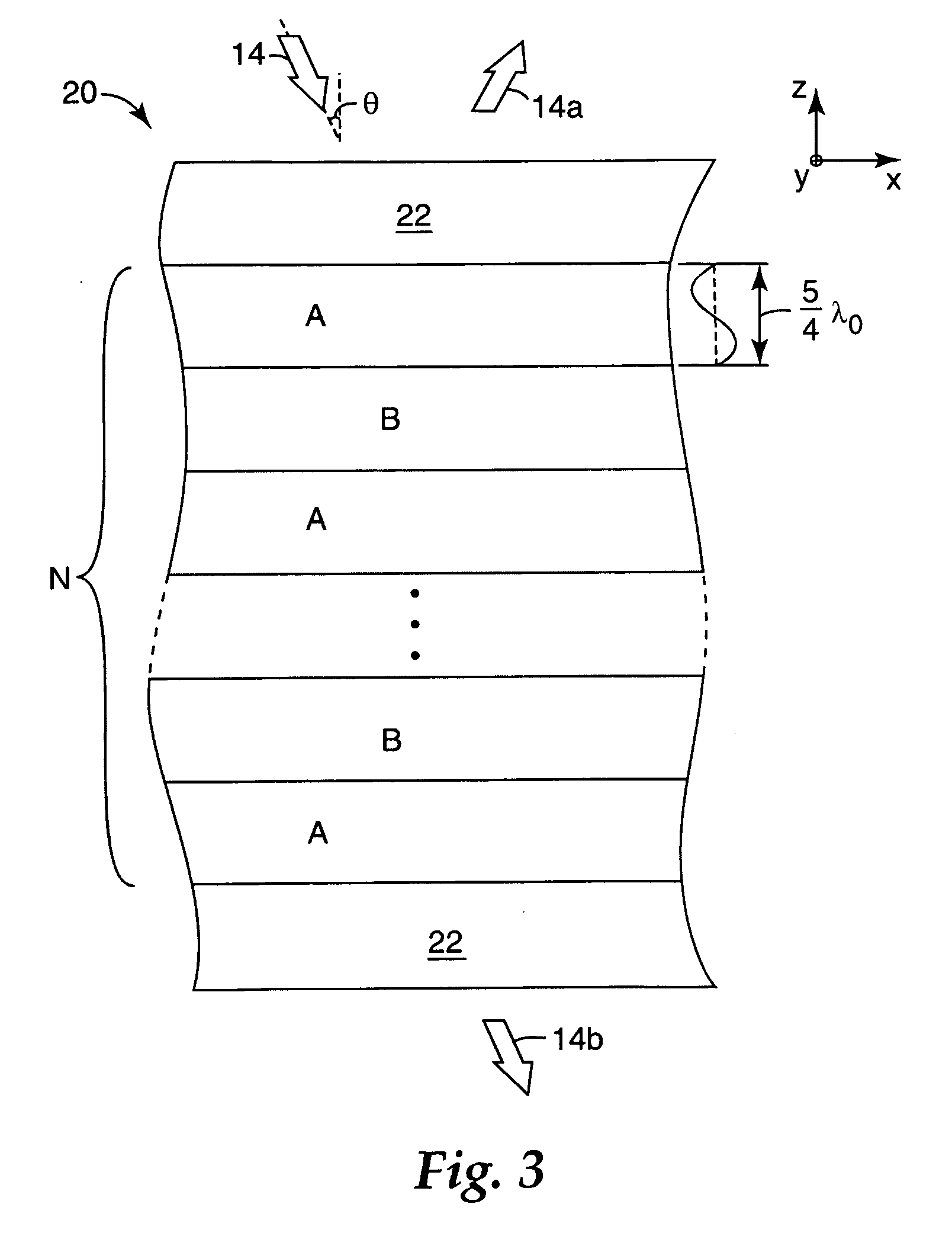Thick film multilayer reflector with tailored layer thickness profile
a multi-layer reflector and thickness profile technology, applied in the field of reflective optical bodies, can solve the problems of affecting the application of certain applications, and achieve the effect of substantial variability in reflection and transmission characteristics, and substantial effect on optical performan
- Summary
- Abstract
- Description
- Claims
- Application Information
AI Technical Summary
Benefits of technology
Problems solved by technology
Method used
Image
Examples
Embodiment Construction
[0029]FIG. 1 shows a portion of a conventional thin film multilayer reflector 10. Reflector 10 is all polymeric and has a stack or packet of optically thin layers sandwiched between optically thick outer skin layers 12. The layer thicknesses shown in the figure are intended to be representative of optical thickness, as described below, rather than physical thickness. The reflector 10 is shown in relation to a Cartesian x-y-z coordinate system, with the z-axis corresponding to a thickness axis of the reflector and the x- and y-axes extending parallel to the plane of the layers and the interfaces between layers. Arrow 14 represents light incident on the film at an angle θ relative to the z-axis, with reflected light represented by arrow 14a and transmitted light by arrow 14b.
[0030] In the finished product, the optically thin layers are conventionally arranged in a repeating pattern along the z-axis of the reflector. The smallest unit of the repeating pattern is referred to as a unit ...
PUM
 Login to View More
Login to View More Abstract
Description
Claims
Application Information
 Login to View More
Login to View More - R&D
- Intellectual Property
- Life Sciences
- Materials
- Tech Scout
- Unparalleled Data Quality
- Higher Quality Content
- 60% Fewer Hallucinations
Browse by: Latest US Patents, China's latest patents, Technical Efficacy Thesaurus, Application Domain, Technology Topic, Popular Technical Reports.
© 2025 PatSnap. All rights reserved.Legal|Privacy policy|Modern Slavery Act Transparency Statement|Sitemap|About US| Contact US: help@patsnap.com



